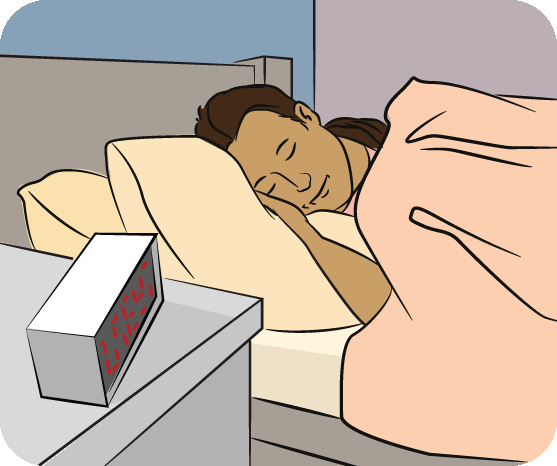The Importance of Sleep

May 11, 2023
All age groups should prioritize getting enough sleep. All bodily systems, including the immune system, benefit from enough sleep. Teenagers’ physical health, emotional and mental growth, and academic achievement all depend on getting enough rest. Sleep helps the brain develop and operate during adolescence, which increases attention span, memory, and cognitive skills. The physiological growth spurt that occurs throughout the adolescent years is supported by getting enough sleep.
However, sleep deprivation impairs academic performance by causing tiredness and a lack of attentiveness. Teenagers who don’t get enough sleep have a higher risk of getting diabetes, hypertension, and behavioral issues in addition to depression and other mental health issues. It has been demonstrated to have a detrimental effect on sports performance.
Teenagers should get between eight to ten hours of sleep every night, according to the National Sleep Foundation and the American Academy of Sleep Medicine, in order to be healthy. However, the majority of teens sleep for much less time each night than is advised. This is partially a result of their circadian cycle naturally shifting, which makes it challenging for children to go to sleep before 11 o’clock. They naturally have an urge to stay up late and sleep in longer in the morning. Early start times for school, a high workload of homework and other schoolwork, an excessive number of extracurricular activities, a busy social life, and excessive use of technological devices are additional factors that affect sleep. Teenagers may stay up late to do several of these duties or to spend time with friends on the weekends, which can all result in them getting little to no sleep.
Parents should set an example for their children by maintaining a healthy lifestyle that includes eating right, exercising every day, and following a regular sleep pattern. Parents can take the following steps to help their teenagers’ sleep patterns:
- Teenagers can figure out whether they are having sleep issues by discussing their sleep schedule and everyday activities with them. Making kids aware of the value of sleep and how much sleep they require each night in order to remain active and attentive during the day would be beneficial.
- Work out priorities and create a schedule that includes enough sleep hours if kids are overwhelmed with homework and assignments in addition to other extracurricular activities.
- Teenagers should be encouraged to take a 30-to 45-minute “power nap” after school to prevent daytime sleepiness.
- Allow teens to make up for the lack of sleep earned during the weekdays by allowing them to sleep one additional hour (but no more, to prevent social jetlag) on the weekends.
- Set time limitations for using screens and gadgets; texting, playing games, or watching videos just before going to bed keeps teens awake, slows their ability to fall asleep, and may even make them worried.
- Encourage teens to engage in restful activities like light reading (fiction or comics) or doing some relaxing meditation before going to bed.
In summary, sleep is essential for physical health, emotional and mental development, and school performance. Inadequate sleep in teenagers is linked to increased risk of depression, behavioral problems, diabetes, hypertension, and athletic performance. The National Sleep Foundation and the American Academy of Sleep Medicine recommend between eight to ten hours of sleep each night. However, most teenagers get far less than this due to the natural shift in their circadian rhythm, an early start at school, a heavy workload, disproportionate extracurricular activities, a busy social life, and an excessive use of electronic devices.








